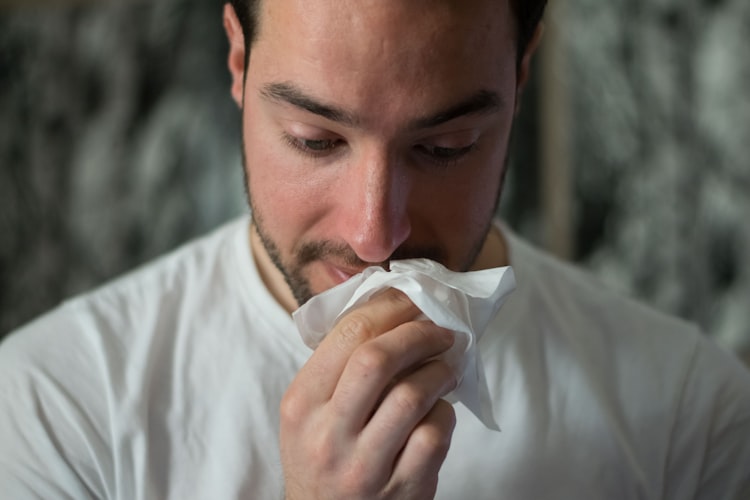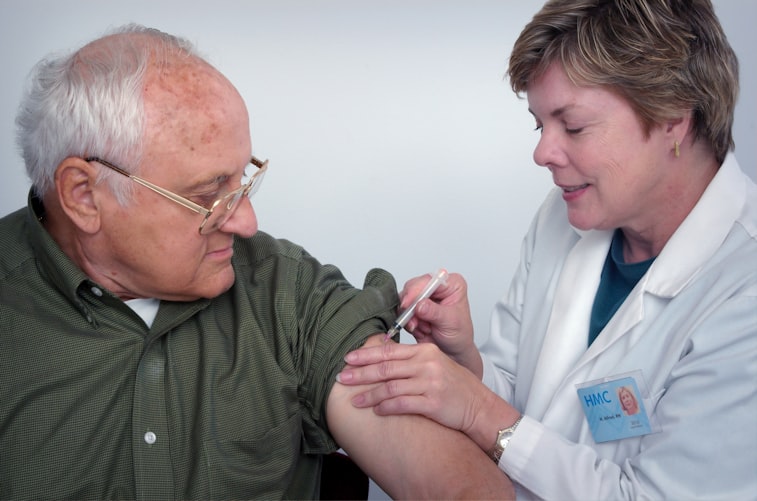Recent research has confirmed that individuals with sleep apnea are at a higher risk of severe outcomes from COVID-19, showing just how important it is for CPAP users to take precautions during this time.
Now, however, the fight against COVID-19 is entering another critical phase: the beginning of flu season. Medical professionals are urging people to get flu vaccinations, saying that vaccines will be more important than ever before to keep hospitals from getting overwhelmed in the midst of a pandemic.
As it turns out, these warnings regarding the flu are also of greater note to individuals with sleep apnea. A new study further cements the potential for more severe outcomes from the flu for sleep apnea patients who do not use CPAP treatment.
The Connection Between Sleep Apnea and the Flu
The study, which was published in the Journal of Clinical Sleep Medicine, looked at diagnosed flu patients between 2016 and 2018 who were also known to have obstructive sleep apnea. The study looked at a wide range of factors, including CPAP adherence, whether the patients received a flu vaccine, and whether they were hospitalized or experienced any other complications.
The study found that patients who were not adherent to their CPAP therapy or who did not receive any sleep apnea treatment whatsoever were five times more likely to require hospitalization after contracting the flu. An alarming 61 percent of patients who did not use CPAP therapy had to be hospitalized because of the flu.
This held true despite the fact that the non-adherent CPAP users were actually more likely to get a vaccine than people who followed their CPAP treatment.
In a statement regarding the outcome of the study, study author Glen Greenough, MD noted, “These results would suggest that use of a treatment, CPAP, that improves sleep quality reduces the severity of influenza infection as determined by rate of hospitalization. This might suggest that treating sleep apnea and thereby improving sleep quality has a beneficial effect on the immune system. It also suggests that treating sleep apnea with CPAP could help reduce hospitalizations, thereby reducing health care costs.”
In other words, poor quality sleep can have a direct impact on the severity of flu and other viral infections — as has also been found to be true with COVID-19.
What Should CPAP Patients Do?
The findings of this study show just how important it is for sleep apnea patients to take precautions against the flu — particularly during a year in which we are also battling COVID-19. Health recommendations should be viewed as more than just “guidelines” for individuals in higher risk groups — they should become a true guide for day to day living.
Getting the flu vaccine should still be a priority for those who follow CPAP therapy guidelines. Even though the risk of hospitalization was significantly less for CPAP users, 24 percent of patients in this group still needed to be hospitalized. This would seem to indicate a higher risk for hospitalization among all sleep apnea patients than the general population.
While the flu vaccine is not 100 percent effective, it has been found to greatly reduce your risk of getting sick by counteracting the most common strains of the virus. If you haven’t already received a flu shot, you should get a vaccination right away, as it typically takes up to two weeks for your body to develop antibodies.
Flu shots are covered by most insurance policies, but even if you don’t have insurance, the cost of the vaccination is relatively cheap — and far less expensive than if you were to end up in the hospital.
Many of the additional recommendations for reducing your risk for the flu are the same as those regarding COVID-19, such as washing hands regularly, disinfecting frequently used surfaces, and maintaining social distancing of at least six feet when in public. Wearing a mask is also encouraged during this time.
Of course, as the study revealed, sleep apnea patients should make sure they are fully compliant with their CPAP therapy. CPAP treatment prevents the interruptions to sleep caused by sleep apnea, allowing you to rest soundly through the night. This uninterrupted sleep helps strengthen your immune system, making you less susceptible to the flu and other illnesses.
Taking these precautions will also protect others. Like COVID-19, the flu is highly contagious, and you can infect others even before you start showing symptoms. Being extra careful won’t just help you — it will also protect any other high-risk individuals in your life.
Stay Safe This Flu Season
The onset of flu season in the midst of the COVID-19 pandemic presents unique healthcare challenges — especially for sleep apnea patients, who are at a greater risk from both viruses. These medical findings make it clear just how important CPAP compliance is.
Unfortunately, a lack of insurance keeps many with sleep apnea from obtaining the equipment they need to manage their equipment. This is where No Insurance Medical Supplies stands to help. We offer a wide range of CPAP machines, masks, and other equipment from leading brands at discounted prices.
In addition, we now sell products to help keep you safe during the COVID-19 pandemic and flu season, including N95 masks and hand sanitizer. Fast shipping, available financing, and readily available support staff ensure that you can find everything you need at a price you can afford. We are dedicated to helping you stay healthy and CPAP compliant.


